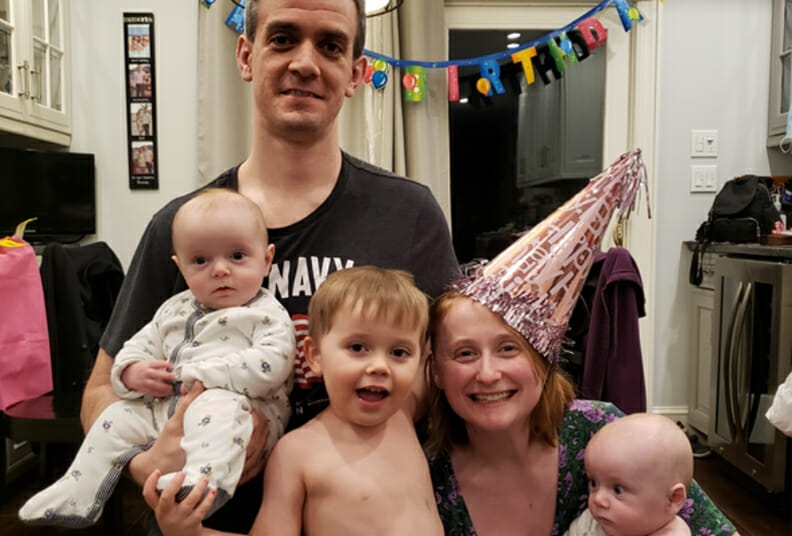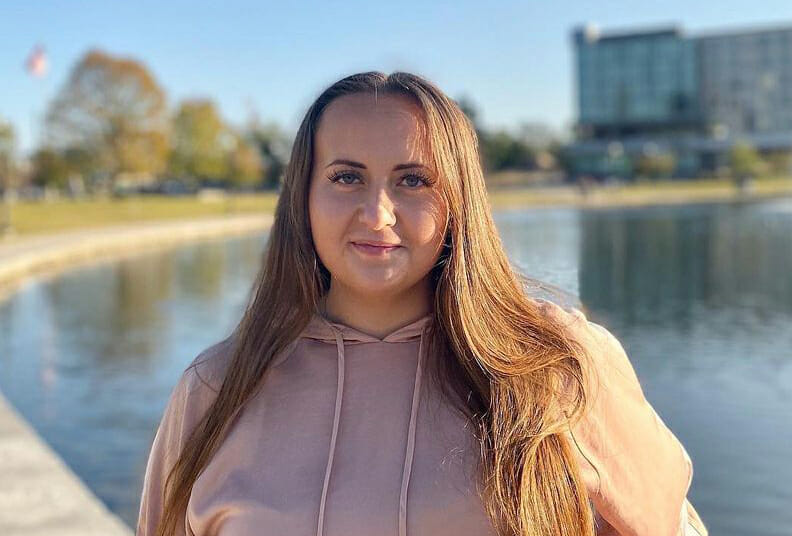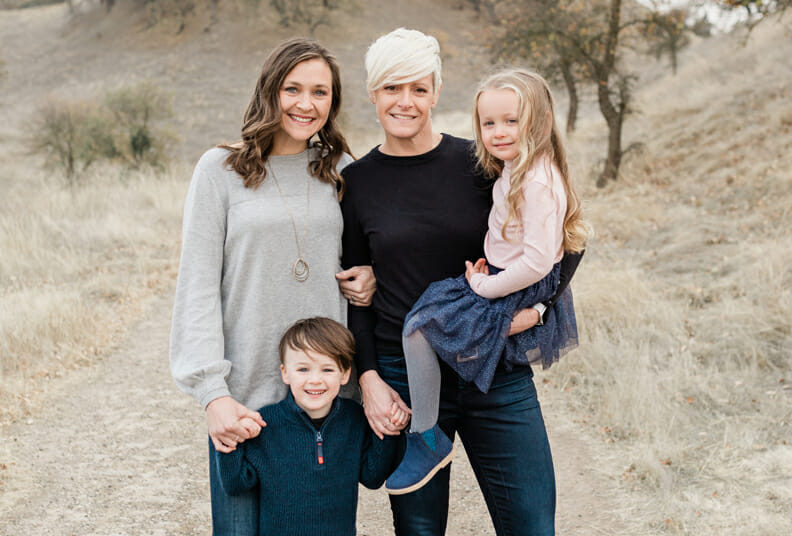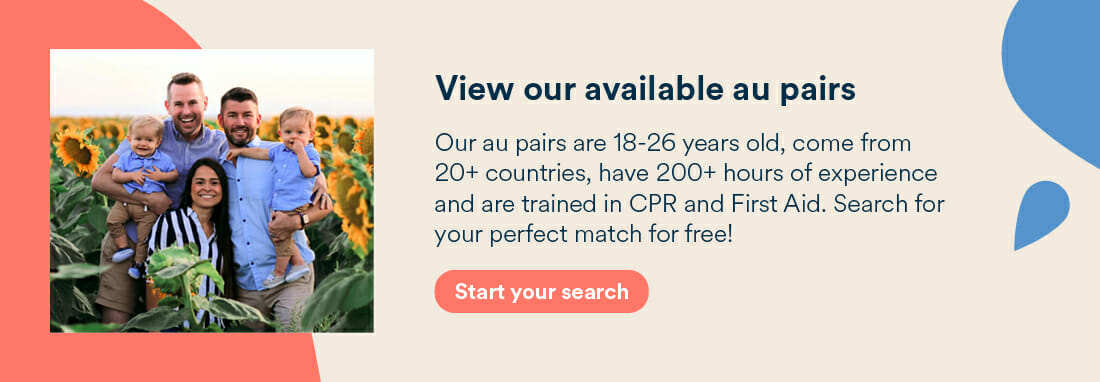An inclusive matching process allows au pairs and host families to feel safe, respected, and comfortable being themselves. Nurturing a supportive environment also helps both parties recognize similar values in each other and be open to one another’s differences. Eventually, this can lead to a better host family and au pair match. Here we share some tips for making sure your approach to matching and interviewing is as inclusive as possible!
1. Be aware of your own unconscious bias
Unconscious bias is defined as unconscious forms of discrimination and stereotyping based on someone else’s race, gender, sexuality, ethnicity, weight, age, and more. “As a host family searching for your family’s au pair, there is most certainly unconscious bias at work—it’s impossible to eliminate it completely,” says Sharlice Powell, who is a Diversity, Equity, Inclusion and Belonging (DEIB) Captain at Cultural Care Au Pair. “But, there are ways to interrupt unconscious bias during the matching process just like in any other situation.”
The first step to interrupting your unconscious bias is to pay attention to the thoughts that are going through your head as you review an au pair’s profile. What causes you to become interested in some au pair candidates and reject others? It may help to ask yourself the following questions, and other questions like them, to help you identify internal stereotypes:
- How does an au pair’s nationality influence my interest in them?
- Am I making judgements about an au pair based on their appearance?
- Am I dismissing candidates based on their gender, religion, age, etc.?
Once you become more aware of your unconscious bias, you can challenge your own stereotypes and judge whether a candidate is right for your family based on the things that matter most: their experience, qualifications and personality.

Host mom Melissa suggests making your personal pronouns part of your introduction to au pair candidates.
2. Voice your commitment to inclusion
Au pairs are more aware than ever on how things like social injustice, racism, and politics are affecting our society—in their home countries as well as in the U.S.—and they want to know prospective host families’ views on them. Cultural Care Matching Specialist Raphael Fonseca: “It’s becoming very common for au pairs to ask host families during the interview process to describe how they feel about these issues and the actions that they are taking as a result. Be prepared to have deeper conversations with au pairs during the interview process.”
Raphael advises families to not only be prepared to discuss important social topics, but to be proactive in sharing opinions about them. One way to do this is by including pertinent information in your host family profile. For example, “adding photos of your family at a Pride event shows that you support the LGBTQ+ community.” He also loves this inclusive statement shared in one host family’s profile: “We hope that you will feel comfortable being yourself around us and we look forward to having you care for and teach our kids.” Making your commitment to inclusion very clear in your profile helps au pairs feel much more at ease with your family and comfortable asking follow-up questions they might have during the interview process.
Future host mom Melissa is an LGBTQ+ ally and also serves as the advisor to her school’s Pride Club. One of Melissa’s suggestions for being more inclusive during the matching process is to “make your personal pronouns part of your standard self-introduction. The more normalized this practice becomes, the safer the space becomes for all people to introduce themselves with their pronouns.” You might decide to include your family’s pronouns in the letter to the au pair or during your face-to-face interactions.

When Swedish au pair Ebba was interviewing host families, she appreciated when they asked about a “partner” versus a “boyfriend”.
3. Review your interview questions
During the interview process, it’s also important to make sure the questions you’re asking are inclusive with regards to an au pair’s sexual preference, socioeconomic background, religion, and more.
Swedish au pair Ebba, who identifies as LGBTQ+, understands that some families are interested in finding out if their potential au pair has a romantic partner. She doesn’t mind being asked about a special someone in her life but says, “One thing that I love when people do in general—and my host family did—is ask me ‘do you have a partner?’, ‘are you in a relationship?’ instead of just asking me if I have a boyfriend.”
Here’s another example of how to change a common interview question to be more inclusive. A host family might decide to assess a potential au pair’s maturity or independence by asking whether they’ve lived away from their parents or visited other countries already. For many au pairs, the answers to these questions will be no—but not because they don’t have a desire to live alone or travel. Rather, these opportunities might be out of reach for financial reasons. So if an au pair has not lived alone or traveled a lot, some great follow-up questions might be: “Do you do your own laundry?” “Cook your own meals?” “Clean your own room/apartment/home?” “How independent would you say you are you on a scale of 1–10?”
“How do you celebrate Christmas?” is another example of a question that may be alienating to some. Many of our au pairs identify as being Christian, but there are also Cultural Care au pairs who practice Islam, Judaism, Buddhism, etc. “What’s your favorite holiday?” is a better alternative and allows an au pair candidate to feel more comfortable sharing about their religion.
The lesson to take away here is to look critically at your interview questions and make sure they are inclusive and appropriate.

Host mom Claire suggests that being generally curious and asking questions during an interview can go a long way toward making au pairs feel comfortable and accepted for who they are.
4. Ask questions and be curious
California host mom Claire has some simple but wise thoughts about being more inclusive: “Ask questions of those around you. Be curious about other peoples’ lives and take the time to listen to their stories. Doing just that goes a very long way.”
This advice is true for just about any situation, including while interviewing au pairs. When you spend time getting to know an au pair for who they really are, the easier it will be to determine if they are the best fit for your family.
As a host family, it’s not only important to be inclusive during the interview process, but also to be accepting of and open to candidates who may express a different sexual preference, come from a different socioeconomic background, practice a different religion, etc., because the power of cultural exchange is rooted in learning from one another’s differences. We encourage you to take full advantage of welcoming a new person into your home and choose someone who has a unique background and fresh perspective to share.
